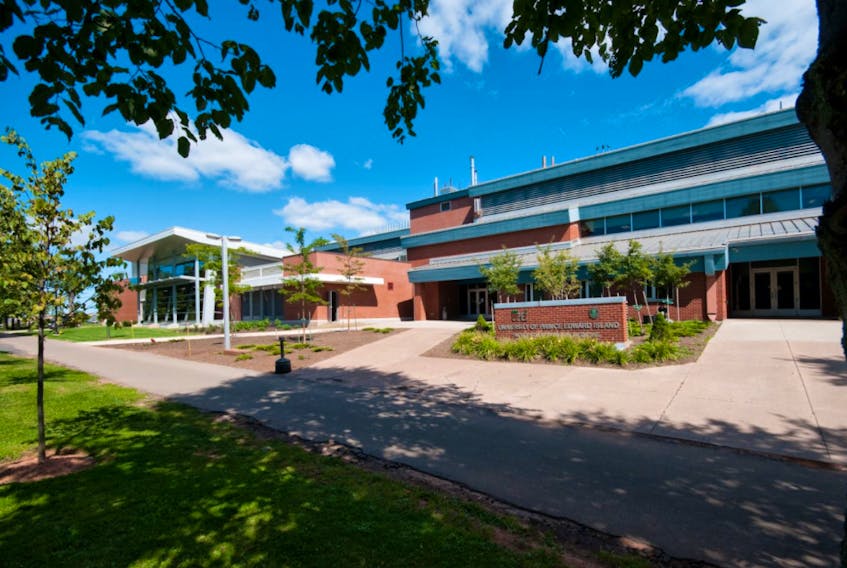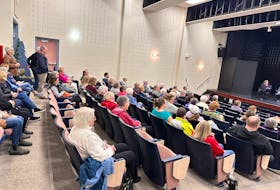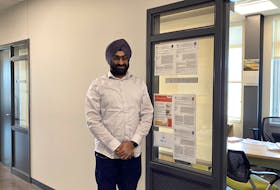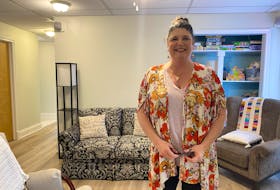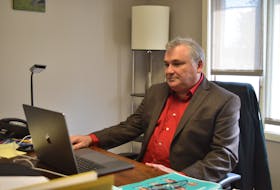CHARLOTTETOWN, P.E.I. — For any student, the first day of the school year always comes with a bit of nervous excitement about how the year will unfold.
But for 66 Atlantic Veterinary College students getting ready to start the fourth and final year of their doctoral studies on Monday, the school year will also involve a new way of interacting with colleagues and clients during COVID-19.
There is also uncertainty about finishing the fourth year, hands-on clinical training portion of the degree if a second wave of COVID-19 hits at some point this year, says student Camilla Cools.
"It's nice to get things going again. It's safe to say that everyone who is in a program like this, they're very motivated individuals. We worked very hard to get here, so it's nice to be able to get fourth year on the road and potentially graduate in May. But I'm also very curious to see how things will go," said Cools, 26, from Hammonds Plains, N.S.
Whereas other university classes can be offered online, that isn't the case for the fourth-year clinical training, especially with respect to skills development, explained Leigh Anne Lamont, UPEI's associate dean of academic and student affairs and an associate professor at the AVC.

"So, students might be learning surgical skills or procedural skills. It might be something like placing an intravenous catheter or performing an endotracheal intubation or performing certain diagnostic tests that require dirct interactions with animals," said Lamont. "There are other elements that are also more challenging to do online, even around communication training and simulations and role play we do with our students to help them foster communication skills."
Lamont added that some elective rotations won't be offered so the college can put a priority on core rotations given the later start date and allowing students to have a better chance to graduate on time. Students will be required to self-monitor for COVID-19 symptoms, wear personal protective equipment, such as face masks, and practise physical distancing in the school's veterinary teaching hospital and diagnostics lab as well as when they are at a farm or a racetrack working with horses. Students will also be working in smaller teams and will have limited contact with clients dropping off animals compared to previous years. The college already has staff with expertise in epidemiology and infection prevention, which will help students complete their degree in a safe manner this year.
The plan is to have the fourth-year clinical rotations completed in April. But with everything, that all depends on what happens with COVID-19, said LaMont.
"Certainly, the pandemic is still an unpredictable factor that we're trying to deal with," said LaMont.
"And so, if there is a second wave as we've heard so much about, or a need to enhance restrictions for a period of time, some time over the next nine months, we might have enough flexibility to do that and still get our students through and graduated. That's a hugh priority."
"Certainly, the pandemic is still an unpredictable factor that we're trying to deal with."
- Leigh Anne Lamont, AVC
Cools went home to Nova Scotia, and came back to P.E.I. on June 16. She had to self-isolate for 14 days. P.E.I. health officials called her every day at random times to make sure she was self-isolating, and check up with questions about possible symptons.
"They've been pretty strict on us, which is a good thing," she said.
Cools previously graduated from Dalhousie University with a bachelor of science degree in biology. She will be doing her clinical rotations at the AVC.
As with other students, she will receive clinical experience working with different animals, but her plans after graduation are to work with small domestic animals, including cats and dogs.
Cools is excited to get back to her degree and graduate. And, she hopes she can finish on time without any more delays.
"We've worked so hard to get here and a lot of us are dealing with an immense amount of student debt that needs to get paid off. So, the sooner we can get out working the better," she said.

